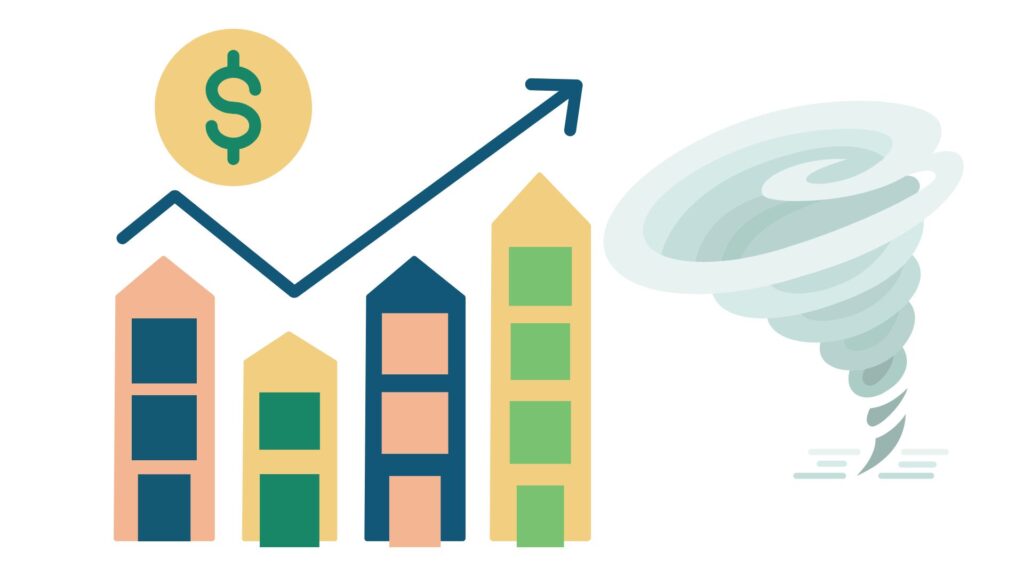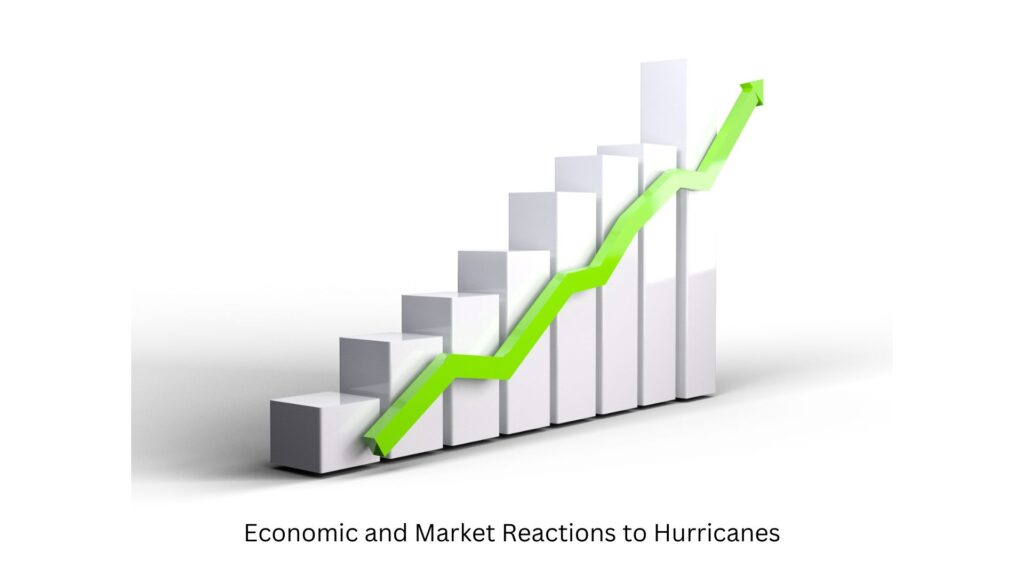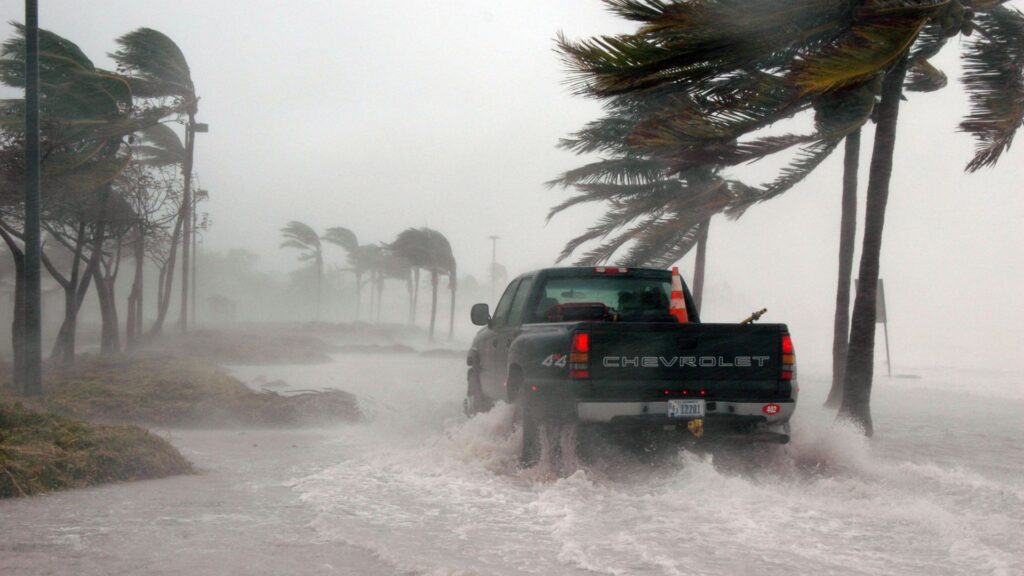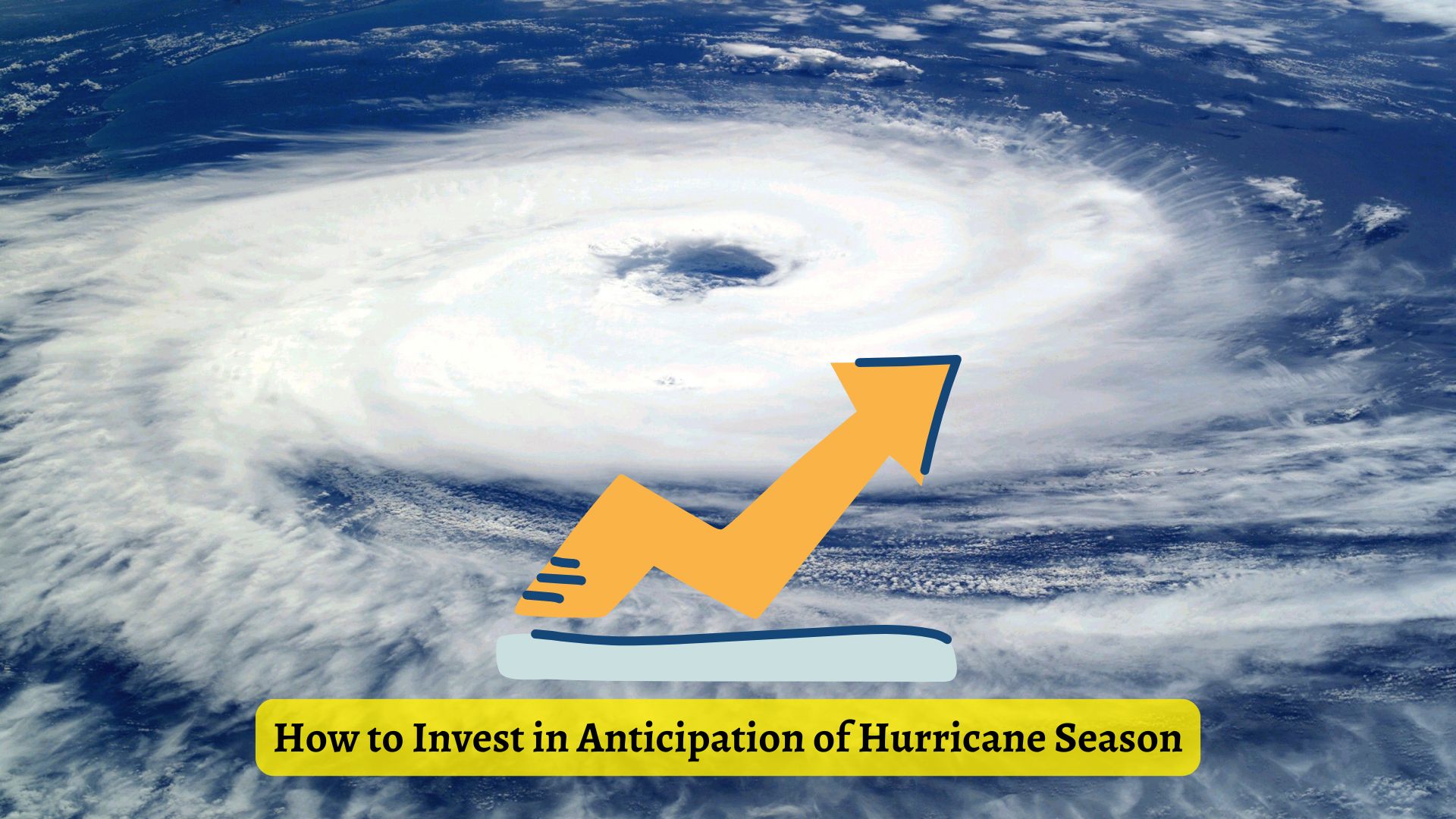How to Invest in Anticipation of Hurricane Season: As hurricane season approaches, the impacts on communities and economies become increasingly significant. For investors, hurricanes present both risks and opportunities, especially in sectors like energy, construction, and insurance.
Understanding how to navigate these challenges and position your portfolio effectively can yield substantial benefits.
This guide will explore how to strategically invest in anticipation of hurricane season, highlighting key sectors to watch, effective strategies, and essential tips for making informed investment decisions.
The Impact of Hurricane Season on Investments

Hurricane season in the Atlantic Basin typically runs from June 1 to November 30, with peak activity occurring from mid-August to late October. Hurricanes primarily affect coastal areas in the Caribbean, Gulf of Mexico, and the eastern United States.
These storms are known for their destructive power, causing significant damage to infrastructure, utilities, and property. As an investor, recognizing how hurricanes impact different sectors can help you make strategic investment decisions.
Key Sectors Affected by Hurricanes
Insurance Sector
The insurance industry is significantly impacted by hurricanes due to increased claims from property damage. When a hurricane makes landfall, insurance companies often face a surge in claims for damaged properties, leading to potential fluctuations in stock prices.
Insurers typically use reinsurance to mitigate some of these risks, transferring part of the financial burden to other companies. This reinsurance strategy helps balance their exposure but can also influence the stock performance of these firms.
Example
Companies like Allstate and State Farm, which provide homeowner’s and flood insurance, may see their stock prices react to the volume of claims following a major hurricane.
Investors should monitor these firms’ quarterly reports for insights into their financial health and risk management strategies.
Construction Sector
The construction industry often experiences increased demand for services following a hurricane. Rebuilding efforts require substantial resources and labor, which benefits construction companies. These firms see a surge in business as they repair and reconstruct damaged infrastructure and homes.
Example
Major construction companies such as Fluor Corporation and Jacobs Engineering might experience a boost in revenues during and after hurricane season. Investing in these companies can offer opportunities for growth as they secure contracts for rebuilding efforts.
Home Improvement Sector
Home improvement companies benefit from the increased need for repair materials and services during hurricane season. Retailers specializing in home improvement and repair supplies often see a spike in sales as homeowners and businesses repair damage caused by hurricanes.
Example
Companies like Home Depot and Lowe’s typically see increased sales of repair materials and home improvement products during hurricane season. Investing in these retailers can provide stable returns as they cater to heightened demand.
Energy Sector
The energy sector, particularly oil and gas production, is vulnerable to hurricanes. The Gulf of Mexico, a significant hub for oil and gas production, often faces supply disruptions due to storm damage. These disruptions can lead to increased energy prices and affect the stock performance of energy companies.
Example
Companies such as ExxonMobil and Chevron, which operate in the Gulf of Mexico, may experience stock price volatility due to production disruptions caused by hurricanes.
Monitoring these companies’ operations and supply chain disruptions can help investors make informed decisions.
Retail Sector
Retailers may experience disruptions in their supply chains and a surge in demand for essential goods during hurricanes. Companies involved in disaster recovery and logistics also see increased activity as they help manage the distribution of necessary supplies.
Example
Retail giants like Walmart and Target, which have extensive supply chains and logistics capabilities, may see fluctuations in their stock prices based on their ability to manage supply chain disruptions and meet increased demand for essential goods.
Economic and Market Reactions to Hurricanes

Historically, hurricanes have caused short-term market fluctuations in affected areas. The energy sector, particularly oil and gas, can become volatile due to disruptions in production and supply chains, potentially driving up prices.
On the other hand, insurance stocks might react to changes in premiums and reinsurance strategies, which can be more predictable over time.
Investors can anticipate these market changes by analyzing historical data and trends. Understanding how different sectors respond to hurricanes can guide strategic investment decisions.
Strategic Approaches to Hurricane Season Investing
To capitalize on hurricane season, consider implementing the following strategic approaches:
Moderation in Investment
Investing cautiously is crucial during hurricane season. Balancing potential profits with risks is essential to avoid overexposure to sectors that may experience significant fluctuations. Maintaining a diversified portfolio can help manage potential losses and provide stability.
Example
Allocate a portion of your portfolio to sectors that are expected to benefit from hurricane-related activities, such as construction and home improvement, while also investing in more stable assets like utilities and infrastructure.
Identifying Winning Sectors
Focus on sectors and stocks that are positively impacted by hurricanes or those that recover quickly. Analyzing historical performance and current market trends can help identify which sectors are likely to experience growth during hurricane season.
Example: Investing in construction firms and home improvement retailers that have historically performed well during hurricane seasons can provide growth opportunities.
Storm and Company Analysis
Conduct thorough research on specific companies and sectors that perform well during hurricane season. Look for firms involved in rebuilding, disaster recovery, and essential services.
Analyzing their financial health, risk management strategies, and historical performance can guide investment decisions.
Example: Evaluate companies like Jacobs Engineering and Home Depot for their performance during previous hurricane seasons and their ability to handle increased demand for their services.
Target Home Improvement Retailers
Investing in home improvement retailers can be a strategic move during hurricane season. Companies like Home Depot and Lowe’s benefit from increased demand for repair materials and home improvement products.
These retailers often see a boost in sales as homeowners and businesses address hurricane damage.
Example: Analyze quarterly reports and sales data for Home Depot and Lowe’s to assess their performance during hurricane seasons and make informed investment decisions.
Invest in Construction Companies
Construction companies involved in rebuilding efforts post-hurricane can provide significant growth opportunities. Firms specializing in reconstruction and repair often secure contracts for large-scale rebuilding projects, leading to increased revenues.
Example: Consider investing in major construction firms like Fluor Corporation and Jacobs Engineering, which are well-positioned to benefit from increased demand for rebuilding services.
Focus on Disaster-Specialized Energy Firms
Energy companies involved in disaster recovery or utilities may offer strong investment opportunities. These firms often have experience managing supply disruptions and may provide stability during hurricane season.
Example: Look for energy companies with a track record of effective disaster response and recovery, such as those involved in restoring energy supplies after storms.
Watch Logistics and Transport Stocks
Stocks in logistics and transport can be volatile due to their role in disaster response and recovery. Companies involved in delivering essential goods and services often experience fluctuations based on their ability to manage supply chain disruptions.
Example: Monitor companies like FedEx and UPS for their performance during hurricane season and their ability to manage logistics challenges.
Sectors and Stocks to Watch During Hurricane Season
For investors seeking broader exposure, consider investing in ETFs and funds that focus on building and construction or disaster recovery. These funds provide diversified portfolios based on sectors that typically respond positively to hurricane-related activities.
Example: The Invesco Dynamic Building & Construction ETF (PKB) offers exposure to a diversified portfolio of stocks in the construction sector. Investing in such ETFs can simplify the investment process and reduce the need to select individual stocks.
Investing in Hurricane ETFs and Weather-Related Funds

Insurance companies face dual challenges during hurricane season: increased claims and the need for effective reinsurance strategies. Investing in reinsurance firms or diversified insurers can provide long-term benefits as these companies adjust premiums and manage risk.
Example: Consider investing in reinsurance firms or diversified insurance companies that have a proven track record of managing risk and adjusting premiums based on hurricane-related claims.
Critical Considerations for Investors Before Hurricane Season
Timing and preparation are crucial when investing before hurricane season. Here are key considerations to keep in mind:
Timing Your Investments Ahead of the Peak Season
To maximize returns, start positioning your investments in stocks or ETFs as early as late spring. Monitoring weather forecasts and storm predictions can help you time your investments effectively.
Example: Research historical hurricane patterns and current weather forecasts to identify optimal investment timing before the peak of hurricane season.
Balancing Risk and Reward During Hurricane Season
Diversify your portfolio to manage risk effectively. While some sectors may experience significant fluctuations, investing in stable assets like utilities or infrastructure companies can provide balance and stability.
Example: Maintain a diversified portfolio that includes hurricane-sensitive sectors as well as stable assets to mitigate potential risks.
Awareness of Regional and Sectoral Effects
Consider the geographic and sectoral exposure of your investments. Companies operating in hurricane-prone areas, such as the Gulf of Mexico or the Eastern Seaboard, may face greater risks.
National or global companies with diversified operations may be less affected by localized storms.
Example: Evaluate the geographic exposure of your investments and consider companies with operations across multiple regions to reduce risk.
Conclusion
Investing in anticipation of hurricane season requires a strategic approach, careful timing, and effective risk management. Hurricanes can disrupt economic environments, but they also present opportunities for savvy investors.
By focusing on key sectors like insurance, construction, and energy, and utilizing ETFs and weather-related funds, you can position your portfolio for success.
Timing your investments before the hurricane season and diversifying across industries and geographic regions can help mitigate risks and capitalize on potential gains.
Consider defensive strategies and stay informed about market trends to navigate the challenges and opportunities presented by hurricane season effectively.
Invest wisely and prepare for hurricane season to make the most of the unique investment opportunities it offers
FAQs: How to Invest in Anticipation of Hurricane Season
1. What is the best time to start investing before hurricane season?
Start investing in late spring to position your portfolio before peak hurricane activity, which usually begins in mid-August.
2. Which sectors benefit most during hurricane season?
Sectors like construction, home improvement, and disaster recovery generally benefit due to increased demand for rebuilding and repair services.
3. How can hurricanes affect insurance stocks?
Hurricanes lead to higher insurance claims, which can impact stock prices. Insurers with effective reinsurance strategies may manage risks better.
4. Should I invest in energy stocks during hurricane season?
Energy stocks, especially those in oil and gas production, may be volatile due to supply disruptions. Monitor their performance and disruptions in the Gulf of Mexico.
5. Are there specific ETFs for hurricane season investments?
Yes, ETFs like the Invesco Dynamic Building & Construction ETF (PKB) focus on sectors that benefit from hurricane-related activities, offering diversified exposure.
6. How do hurricanes impact construction companies?
Construction firms see increased business from rebuilding efforts post-hurricane. Investing in these companies can provide growth opportunities during and after the storm.
7. What should I consider when investing in home improvement retailers?
Home improvement retailers often experience a surge in sales during hurricane season. Evaluate companies like Home Depot and Lowe’s for their performance in past storms.
8. How do I balance risk and reward in hurricane season investments?
Diversify your portfolio to include both hurricane-sensitive sectors and stable assets. This approach helps manage risks and capitalize on potential gains.

